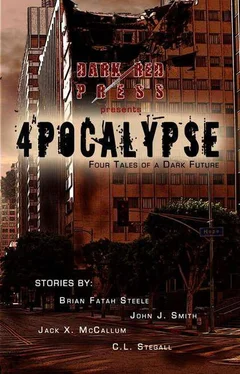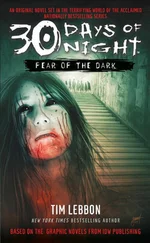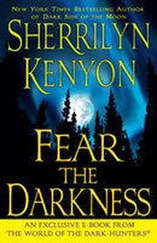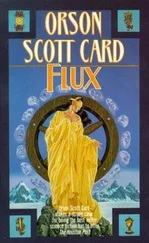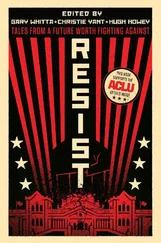Behind the horde of grins were two green army vehicles with mounted guns. The guns were firing. The grins were being herded right into us.
I turned and shouted for everyone to run as fast as they could, for the pier, for the docks on the east side.
We ran. It was madness.
I heard cries behind me. An older gentleman stumbled and fell. His name was Tom and he used to be a mutual fund trader. A heavyset woman with a red face was struggling to keep up. I turned away from them. They were too slow. Too damned slow. A little boy was lagging behind. I scooped him up, still holding Clyde’s leash, and ran.
The grins fell on the old man and the heavyset woman.
My people disappeared behind the Aquarium of the Bay building.
I felt but did not hear the shot that tugged at my go bag. I looked in that direction and saw that one of the vehicles had stopped and a soldier was pointing a rifle in my direction. I waved my arms and he fired again, and my left collarbone was chipped, the bullet tearing a channel through the top of my shoulder. The pain was excruciating. The soldier must have seen only the left side of my face. He must have thought I was a grin.
Either way, the soldiers would probably slaughter all of us if they still thought of San Francisco as a quarantine zone. We had to move.
I ran.
The commotion was scaring away the sea lions that had taken over a few of the docks more than twenty years ago. To tourists and businesses that made a buck off of the sea lions they were living landmarks. To people who lived on the docks and eventually had to move, the big mammals were stinky and loud—so loud that on a quiet evening their characteristic ork-ork could be heard as far away as Pacific Heights. Now they were awkwardly rolling and crawling off of the docks, and the moment they hit the sea they were graceful and fast, disappearing from sight.
I begin looking over the boats in the area while trying to ignore the pain in my shoulder. Anything that appeared seaworthy had already sunk or was sinking. I could see the bullet-riddled hulls of otherwise pristine pleasure boats. What were left were creaky old boats turned living quarters. Among all the abandoned and scuttled boats at the many slips, I saw two inflatable Zodiac boats fifty feet apart. They might have been ignored because they sat low in the water, and they were old, but they were still floating, and I hoped the outboard motors had plenty of fuel in them.
Some of the bigger boats may have been seaworthy but that determination would take time we did not have. Most of them had been moored in slips a long time, more house than boat. I preferred the Zodiacs. They may have been old and scuffed and used for fun and screwing around, but both were black, and they had low profiles.
They would be filled beyond safe capacity, but that was a risk I was willing to take.
A girl in a short skirt and soiled blouse ran at us from among the sprawling two-story maze of buildings housing tourist attractions and shops on the pier. Her grin was fierce. Her emaciated face looked like a horrific mask, and the fingers of her too-large hands were splayed, those rough claws showing remnants of nail polish in bright pink flecks. Benjamin shot her between the eyes and then bent and threw up, his face white with fear.
I began directing people into the boats, thinking, Christ, there are at least ten of us missing. I saw Dr. Anders and was glad for that much.
People scrambled into the Zodiacs. I shouted for them to move quickly but be careful. The tide was coming in and there was a sea swell making the boats, the dock and the wooden fingers jutting from the dock rise and fall, but they did not all rise and fall together.
Renfield gave me a quizzical look. “Where are we going, boss-man?” His go bag was a big backpack. The gray and white cat had climbed up into the pack and perched there with an air of authority, seeming to be the one in charge.
“A mile in that direction,” I said, pointing out into the bay. “Alcatraz.”
I heard frantic questions and a few words of protest, and raised my hands, calling for quiet. Then I explained that landing in Marin or the East Bay would get us killed, and our only other options were Angel Island, which was for the most part a wildlife sanctuary with no shelter from the elements and twice as far away as Alcatraz, or the open sea.
Renfield was thinking fast. He sent two men to looks for fuel cans. They both returned carrying red plastic jerry cans.
I had visited Alcatraz quite a few times in the past. Like walking the Golden Gate Bridge, visiting the island was something San Francisco locals rarely did, unless they had friends or family in town on vacation and went along on the guided tours.
I had also gone on quite a few supply runs with the Wrecking Crew after Jillian had died, after I had killed her. Specifically, nighttime runs. Night runs could be seen as more dangerous, but in fact they were less risky for small teams if they moved fast and stayed sharp. Grins were lurking in the city day and night, but embittered and potentially dangerous survivors like Haise’s gang stayed hidden when the sun went down.
Whenever I had a good vantage point, I watched Alcatraz. There were a few lights burning on the island, but that was expected, even under these unusual circumstances. Alcatraz was a small island right in the middle of shipping lanes between the Pacific Ocean and the Port of Oakland, and it was often hidden in fog, so there were always lights on the island, the most notable being the beacon atop the lighthouse. I was watching the island for two reasons. First, to make sure the lights were still on when the power was off everywhere else, and second, to watch for any moving lights. I saw the former. I never saw the latter.
The main reasons I wanted to go to Alcatraz were isolation, and power. The island should be completely safe, and thanks to recent upgrades, Alcatraz now got over sixty percent of the power to its grid from solar panels, and despite the fog, the Bay got a lot of sunshine. The remainder of their power came from diesel generators, and I could only hope that some fuel was stockpiled somewhere.
When the trouble started the island was very likely evacuated, unless someone else decided to use it as a refuge, which was unlikely. Most people thought it was just a small, cold island filled with the crumbling remains of an old prison left almost in ruins from exposure to the salty sea air. But it could also be a source of food in the form of fish and birds.
Seagulls, cormorants and pelicans are plentiful on the island. To the first Spanish explorers the rock was known as La Isla de los Alcatraces, the Island of the Pelicans. Gulls may be little more than flying garbage cans, and their flesh can be tough and greasy, but they can be eaten. Seafood would not be a problem as long as we had some capable fishermen. And there was wakame. Considered food by some and an invasive plant taking over the Bay by others, this plentiful seaweed was a fair source of vitamins and minerals, if not high in sodium, but most people had bigger things to worry about these days than risking high blood pressure.
Alcatraz could be our sanctuary. I was hoping that no one else had come up with the same thought when the city fell apart.
A grin came around the far corner of the aquarium building, followed by another.
“Who knows how to drive one of these?” I asked. Benjamin raised a hand. So did Conaghan.
“Then let’s go,” I said, stepping into Ben’s boat and taking one last look back at the pier as the mooring line was cast off.
There was no sign of Randall, or Ayala. Or the guns they had hoped to find.
Both outboard motors started. Both sounded choppy, but the boats began moving away from the pier.
Читать дальше
